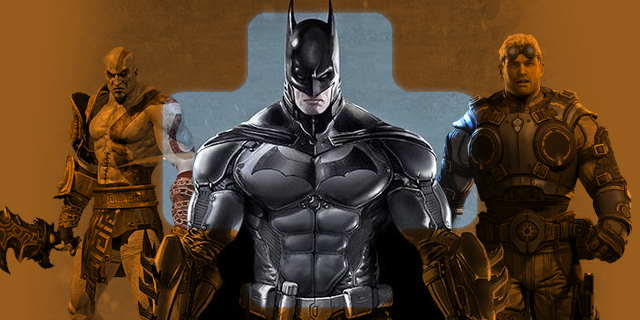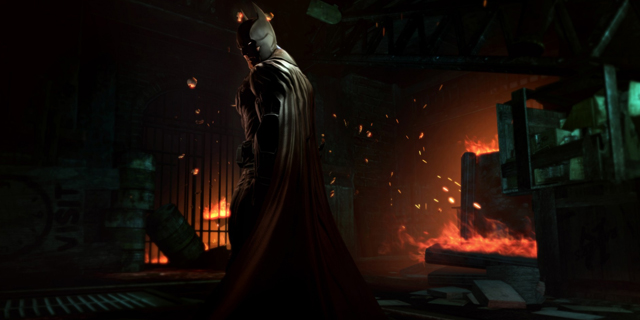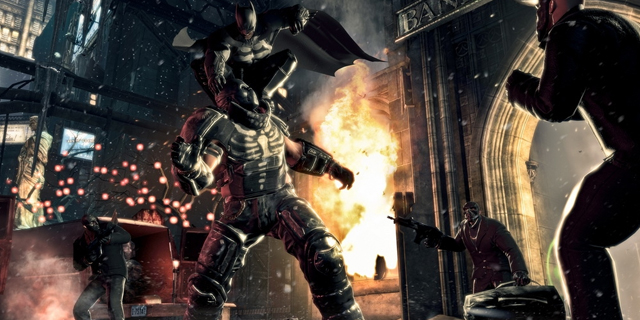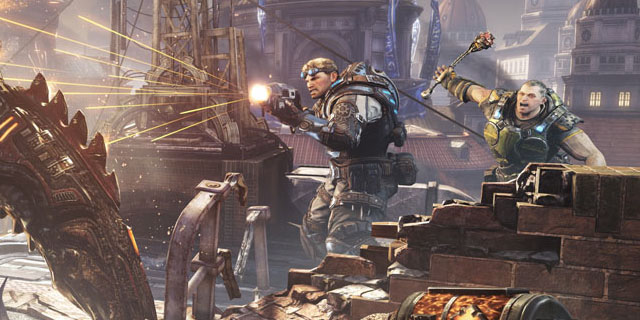
Crafting original stories for games is probably not a simple task, especially if you’re working with established characters. It can be easy to fall back on something like, say, a prequel story. This might be significantly easier in the long run, yet also may expose an inherent flaw when it comes to creating prequel video games: you have to worry about it from both a story and gameplay perspective. Having to evolve the gameplay while containing the story to certain specifics makes for a difficult balance or a game that, at the end of the day, isn’t much of an improvement over its predecessors.
This is a lesson I learned from Batman: Arkham Origins, a game that attempts to tell a prequel story while finding ways to expand upon a proven formula. Arkham Origins has the distinction of being based on an established character, making the prequel conceit a bit strange conceptually. Most people who consider themselves fan of the character are well-versed in his origin, as well as the origins of many of his most famous villains. That said, Arkham Origins isn’t exactly about those specifics. It presents one night in the life of the character, featuring his first encounters with many of his most famous foes. It introduces those villains to Batman, while still maintaining everything a fan might already know without overlap.

Sure, the story in Arkham Origins makes the occasional misstep while attempting to give the most popular villains the spotlight, but there are moments of brilliance throughout. It’s mostly solid from start to finish, and feels like a prequel story that properly connects with the other Arkham games. It won’t break new ground if you’re already a diehard fan of those characters, yet it presents it all in a respectable way. In short, the story is a perfectly enjoyable and acceptable prequel. Unfortunately, it’s also a video game, making everything beyond the plot more difficult to construct.
In the third game in a series that has seen critical acclaim, you have to stick with what works. Everything from the previous two games is intact and still excellent, yet, because it’s a prequel, it becomes difficult to meaningful add any new mechanics or gadgets. Batman can’t learn anything you won’t find in the other two games, because it’s a prequel. Most of the “new” gadgets introduced are just alternate versions of his equipment in previous games, which is confusing. Beyond that, there really isn’t much that hasn’t been done before. Sure, maybe they could have revamped major aspects of the formula, but being trapped in prequel territory would have made that hard. There was no winning either way.
How do you handle something like that? If you remove too much of what made the previous games too great in order to make the game seem even more of a prequel, fans will be unhappy. If you add too many new concepts or mechanics, it will become rather odd. Sure, you can hand wave that by saying, “It may be a prequel in terms of story, but it’s a sequel to two previous games. We need something new here.” It doesn’t stop it from becoming contradictory to your ultimate goal.

They could have gone back further and have a game about Bruce Wayne becoming Batman, but that story has been told a million times before. They needed something different, even if it wasn’t entirely new. There was no getting out of this situation regardless of what approach they took because, simply put, prequel video games are difficult to pull off.
They aren’t impossible, however. Let’s look at the Mass Effect franchise, a now well-established universe still full of potential stories to explore. We don’t know any specifics about the next game in the series, but based on Mass Effect 3’s controversial ending, it could very well be a prequel to that trilogy. From the very beginning, BioWare has created a compelling, expansive universe that could allow for a prequel without any real trouble. No matter where you set the next game or who is involved, chances are any gameplay changes or improvements will not feel out of place as a result.
Arkham Origins is based on a character with a rich history, but because it has roots outside of games, unlike Mass Effect, it becomes very difficult to deviate from those roots. Creating original stories in that world is one thing, but attempting to drastically change anything is problematic. If stray too far from what makes the character and the many villains so interesting will only hurt, not help, in the long run. These types of games are inherently difficult to work with for that very reason, most notably with prequels.

Having said that, creating a prequel based on a well-established video game series isn’t always easy either. While Gears of War may not have as complex a universe as Mass Effect, there is still plenty there worth exploring. Unfortunately, this year’s Gears of War: Judgment fails to do so in any meaningful way. Not only is the story completely forgettable, it manages to introduce new weapons and enemy types you never see in the other three Gears of War games. Most baffling of all is the bonus chapter taking place during Gears of War 3, where those same weapons and enemies show up. It’s technically canon, but it’s hard to take seriously; it might as well be someone’s poorly-conceived fan fiction at that point.
With Arkham Origins, Gears of War: Judgment and even God of War: Ascension, it becomes clear that it’s an end of the console generation rush to put out one last title in a successful franchise without attempting to do anything original or creative. When the story does work, like in the case of Arkham Origins, you are left with a game lacking in any new major gameplay changes in an effort to stick to the prequel conceit. These may not be bad games necessarily, but I doubt you’ll even remember they exist a year from now.
I don’t think all prequels are inherently flawed. They have a tendency to work well under the right circumstances, games simply rarely succeed in that regard. Unfortunately, it’s continuing to become a bigger trend in the industry, with almost none of the games working in the ways the developers seemingly want them to. It comes across as lazy and burdens excellent franchises with a title that feels unnecessary and sloppy. There are ways to handle game prequels successfully, I just hope we actually see more demonstrations of that sooner rather than later.



















